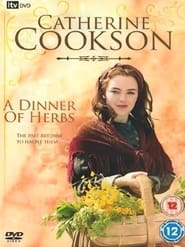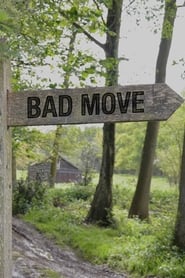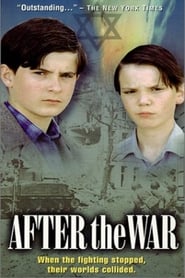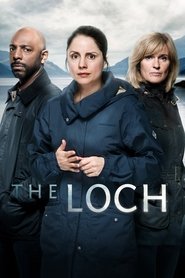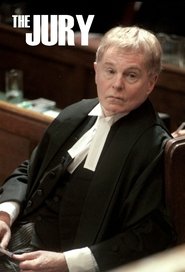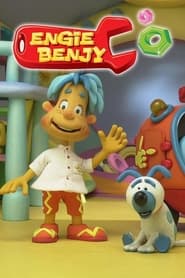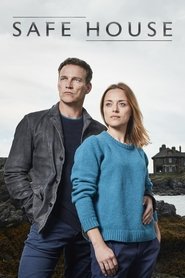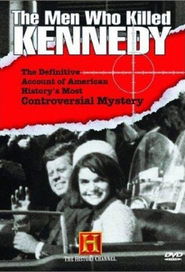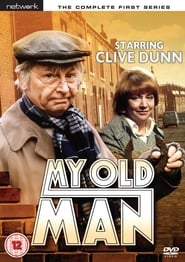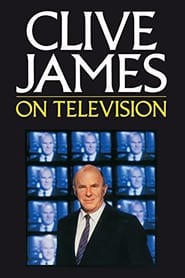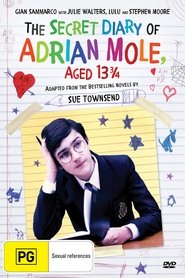Itv1 TV Series - Page 30
-
Yus, My Dear
1976
star 5.3Wally and Lil Briggs have moved from the caravan site where they lived for many years and now live in a council house. Wally has even got a well-paid job on a building site and life is looking good for them. The arrival of Benny, Wally's younger brother, spoils their happiness as he sponges off Wally while looking for a permanent place to stay. Lil is all too aware of his tricks even if the gullible Wally is not ... -
A Dinner of Herbs
2000
star 6After taking his young son Roddy to a remote Northumberland village, Peter Greenbank meets a violent death, leaving the boy alone with no family to speak of. Roddy is adopted and raised by Kate Makepeace, a good friend of his father’s, and develops a close friendship with Hal and Mary Ellen. But their sibling bond is put to the test as they become adults. The hidden secrets of the past are painfully unearthed as their lives are intertwined by a tragic destiny. -
Sorry, I'm A Stranger Here Myself
1981
star 5Sorry, I'm A Stranger Here Myself was a British sitcom that aired for two seasons from 1981 to 1982. It was co-created by actor David Firth and Shelley and It Takes a Worried Man creator Peter Tilbury. The first series was co-written by Firth and Tilbury, and the second one by Firth alone. It starred Robin Bailey, David Hargreaves, veteran Anglo-Jordanian actor Nadim Sawalha, Diana Rayworth and Christopher Fulford. It was made by Thames Television for the ITV network. -
Bad Move
2017
star 5.3Steve and Nicky are both on their second marriages and have decided that moving to the countryside from the city is the answer to all their dreams. They've watched all the TV relocation shows and read the glossy lifestyle magazines and fell in love with the idea of 'getting away from the rat race'. -
Hallelujah!
1981
star 6Hallelujah! was a British sitcom made by Yorkshire Television for the ITV network and was broadcast from April 1983 to December 1984. The series was set in a Salvation Army citadel in the fictional Yorkshire town of Brigthorpe during series 1. Captain Emily Ridley has been posted there, having been an active member of the Salvation Army for 42 years. Despite the town and residents being seemingly pleasant, Emily is determined to flush out sin from behind the net curtains. Assisting Emily are her niece Alice Meredith. The programme was a repeat collaboration between Hird and the creator Dick Sharples, having worked together on the comedy series In Loving Memory between 1979 and 1986. The show even featured guest appearances from guest stars like Hird's Last of the Summer Wine co-star actor Michael Aldridge and television presenter & Countdown Legend Richard Whiteley Himself. -
After the War
1989
star 6John Madden's sweeping drama After the War tells the tale of a quarter-century relationship between two men who share a similar wartime experience and a similar religious background. Michael Jordan grew up in a well-heeled British family, while Joe Hirsch spent much of his childhood on the run from the Nazis. The two become friends when they are both enrolled at the same school in 1942. They survive anti-Semitic taunts together. Joe grows into a powerful media figure, while Michael becomes a respected man of the arts. The film charts a quarter-century of their history together, detailing a relationship that is equally affectionate and hostile. -
That's Love
1988
star 5That's love! is a British television sitcom about the domestic problems of a young married couple, lawyer Donald and designer Patsy. -
The Loch
2017
star 6.6The search for a serial killer becomes a matter of life and death for detective Annie Redford, who is trying to cope with her first murder case. -
The Jury
2002
star 6.4The Jury is a British television serial broadcast in 2002. The series was the first ever to be allowed to film inside the historic Old Bailey courthouse. -
PokerFace
2006
PokerFace
2006
A game show where one person is guaranteed to win £1 million. As implied by the title, PokerFace, is based on the bluffing aspect of poker games. The contestants do not necessarily need to get the questions right in order to win, and can bluff their way through the game and pressure their opponents into folding in order to win. -
Engie Benjy
2002
star 4.5Engie Benjy is a pre-school children's television show, broadcast on ITV's children's strand, CITV. Engie Benjy is a blue haired boy, a mechanic who helps fix problems with his friends' vehicles. His dog is Jollop. Other characters include Pilot Pete and Astronaut Al. The vehicles included in the show are a van, a bus, a bike, a plane, a boat, a tractor and a spaceship. Engie Benjy has a few catch phrases: "whadda-we-do-Dan?", "This is an emergency!" and "Great work team!" Engie also has a song he sings when solving a problem: "There's a problem here without a doubt, let's look around and check it out... Spin the screws, hear the hum, check the temperature.." before Jenny joins in singing "Make a mess, break stuff, whack the dummy with a bat...." The main character voices are provided by television double act, Ant and Dec. In the first series Dec voiced the title role of Engie Benjy while Ant voiced his dog, Jollop. In the third series another character was added for Ant to voice called Trucker Troy, Engie Benjy' -
Safe House
2015
star 6.4Former police officer Robert and his wife Katy left city life behind them after Robert was injured, whilst trying to protect a witness in his care. The witness, Susan Reynolds was fatally shot. Robert has been struggling with the guilt he feels over the death of Susan. In a bid to put the past behind them, Robert and Katy now run a guest house, hidden away in the idyllic Lake District. A surprise visitor turns up, DCI Mark Maxwell, an ex-colleague and old friend. He suggests that the guest house is perfectly positioned to operate as a safe house, Robert is tempted but will Katy agree? -
The Men Who Killed Kennedy
1988
star 7.4The Men Who Killed Kennedy is a nine-part United Kingdom ITV video documentary series by Nigel Turner about the John F. Kennedy assassination. -
My Old Man
1974
star 6My Old Man was a popular but short-lived British comedy programme starring Clive Dunn as retired and embittered engine driver Sam Cobbett. Set in London, England, Sam Cobbett is the last tenant to leave an old house on a council-condemned road. He goes to live with his daughter, her posh husband, and their young teenage son, in a flat nearby. -
End of Part One
1979
star 4End of Part One was a British television comedy sketch show written by David Renwick and Andrew Marshall, it was made by London Weekend Television. It ran for two series on ITV, from 1979 to 1980 and was an attempt at a TV version of The Burkiss Way. The first series concerned the lives of Norman and Vera Straightman, who had their lives interrupted by various television personalities of the day. The second series was mainly a straight succession of parodies of TV shows of the time, including Larry Grayson's Generation Game and Nationwide. -
Clive James on Television
1982
A long-running late night television show on ITV which was made first by LWT and then Granada Productions. It featured a number of clips from unusual or (often unintentionally) amusing television programmes and commercials from around the world. -
Captain Star
1997
star 8Captain Star was an animated television series starring Richard E. Grant as Captain Jim Star, based on a comic by Steven Appleby: Rockets Passing Overhead. Only thirteen episodes of thirty-minutes each were produced and aired. The series ran on the British ITV and Canadian TELETOON networks from 1997 to 1998. The show was also later repeated on Nickelodeon UK. -
The Secret Diary of Adrian Mole Aged 13¾
1985
star 6.5A British television series based on the book of the same name written by Sue Townsend. -
Arthur of the Britons
1972
star 6This series strips away the elaborate medieval view of Camelot, and presents Arthur as the chief of a small Celt tribe in Dark-Ages Britain, a century or two after the withdrawal of Rome. Arthur struggles to weave the scattered tribes of Celts, Jutes, etc. into a union that can effectively oppose the Saxon invaders who are arriving in Britain in growing numbers. He is aided by his adoptive father, Llud, and his foster brother, Kai, who is himself a Saxon foundling. -
The Walk-In
2022
star 6.6Forced to flee the UK and go into hiding in the 1990’s when he became a mole from within the BNP, Matthew Collins returned to Britain to make a new life for himself. As Collins works with young white men in the fight against radicalisation.

